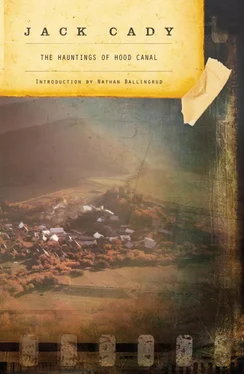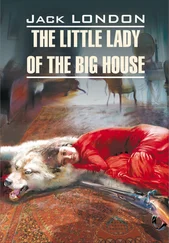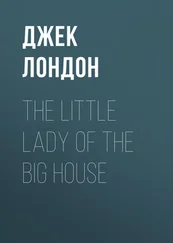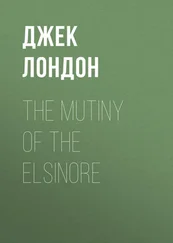They caused a revolution and raised a bunch of kids who during the ’60s would engage in a reformation. Reformation has historically been purifying reform movement based not on radical ideas but on fundamentalism.
Time rolls, the generations pulse, pant, dream and make babies. My friend is twenty-eight, her father fifty seven. In twenty-five years she will be thought an old fogey and her old man and I will both be dead. We lived hard. Thank God you don’t have to take it with you.
He was born in 1920. That meant that he was too young to enjoy the fun. The cats were celebrating the invention of walls by climbing them in those days. They were the days of Fitzgerald and Thomas (not Tom) Wolfe. A world of red hot and enlightened boy scouts. Someday a professorial set of whiskers will flash on the similarity between Richard Nixon and Gatsby.
Eugene hemmed; hinted timidly at shagginess; confessed. They undid their buttons, smeared oily hands upon their bellies, and waited through rapturous days for the golden fleece.
“Hair makes a man of you,” said Harry.
—Thomas Wolfe,
Look Homeward Angel
At the time Henry Ford was the revolutionary. He did it at no inconsiderable profit to himself. Like most revolutionaries of both the 19th and 20th centuries his interests were economic and only secondarily political. As in all revolutions the results were social. Only in the emerging U.S.S.R. would there be revolutionaries who would post a record of political change to equal the social flip-flop that the industrial U.S. would make in this century.
In 1920 Ford had nearly every industry in the nation screaming. His assembly plants boomed. During the First World War he had announced the five-dollar day for employees. It forced industry to compete. Five dollars was an astonishing wage. It caused the kind of shock that took some time to wear off. Early labor leaders in the U.S. were as inept and fumbling before the fact as was the Communist Party in Russia after Kerensky but before Lenin.
The Model T sold more than half a million copies in 1916, two million in 1923, and the total run before the Model A appeared in ’28 would be fifteen million. This in a nation of a hundred fifteen million (of which ten million were black and at the time not entitled to own anything but the blues). A nation that had yet to discover how to build a road that would work all year round.
Our hero (my friend’s father and not Henry Ford) was nine years old when the world died. We must call him hero since his generation knew nothing of protagonists. The Tri-motor was still a thing of the future. The stork was taking a Freudian beating. The life of the nation was as rumpled as a bird sprawled by a shotgun blast. Social patterns, sexual customs, economic beliefs and booze chanted new themes in tin pan alley jargon over the flaming truth of this brave new world. Flight, Oh, beautiful. We can fly.
And fly they did, and, oh God, it was a fabulous wreck.
We die of what we eat and drink. But more we die of what we think…
— E.A. Robinson, “Hector Kane”
I pause to consider sin. Billy Sunday has given way to Billy Graham. What this means is perhaps implied by the fact that no one in America has yet written a book entitled Fundamentalism and the Art of Motorcycle Maintenance. Graham chants dogma. He tells of the faith of our hero’s father, of which there is more to say.
Sin was not an abstraction in 1920, nor was it confined to theological disputation. It was not merely a scare word to evoke societal guilt. It was real. It was walking around out there with a forked tail, horns on its head, the Letter ‘A’ emblazoned across its brow and on its lips was the smile of the goat. Our hero’s parents were products of the Victorian era. They were provincial and that is what our hero learned. Geographic mobility for the majority had been limited to a range of no more than twenty miles from home. Thus, home was different.
Home was more important and more people lived there. Grandparents, aunts, uncles, shirt-tail cousins. The home involved community. It was community.
The Model T broke that community. It was possible to think in terms of a hundred miles, even a thousand. The quick rise of industry in World War One, together with European immigration, caused the cities to boom. From an agrarian society the U.S. rapidly moved toward an urban society. The country boys learned a lot when they got to town.
The first thing they learned is that in a city you can walk around a corner and become a stranger. This is one of the few keys it takes to open the lock of the 1920s.
All bets were off except for one. You may be a stranger to others, and you may behave like others, but your conscience is not a stranger to you. The rule of a Victorian morality weakened because the community was not there to enforce the rules. It only caught up in the late hours when the music had stopped.
It rarely stopped. Business was king. Money was not plentiful for all, but it was plentiful for many. Those who had none had the knowledge of the true believer that all it was going to take was a little time. Everyone would soon be rich.
The U.S. discovered education. It became important to finish high school. That assured success in business.
The educated, as well as the popular press, discovered Freud. Repressions were bad for you. A generation of ladies who had been raised with the expectation of meeting suitors in the home parlor, instead found themselves in roadhouses riding the whirl of illegal booze. Prohibition had struck. Yes, repression was bad for you… and God was back home with the old folks. Deaden that stylistically ridiculous conscience. By 1929 the situation was so tangled that it must have confused a nine-year-old.
Stock prices have reached what looks like a permanently high plateau.
—Prof. Irving Fisher, Yale, 16 October 1929
A lot has been written. There have been more than enough sentimentalities bruited around about the good old days. Horror stories tinged with the schmaltz of sentimentality. In 1929 the economic crisis was more abrupt and longer lasting than would be the political crisis of 1973. Similarities are easy to see. In each case a superficial system of unwarranted power went bankrupt. In each case the enlightened boy scouts took the test for eagle and laid ostrich eggs instead.
This is hardly sarcasm. In each case we see men who were given power, but who did not understand why they deserved it or even why they had it. That they misused power was unremarkable. That they misused it with the sincerity and locker-room morality of boy scouts is most fortunate. Lenin would not have made such a mistake. Neither would Andrew Carnegie or Leland Stanford.
In 1929, at the age of nine, our hero embarked on his revolutionary career. He did not know it at the time. That is one clear difference between a revolutionary and a saint.
Two economic facts have characterized all depressions of the past. There is no work. Of this particular depression there were other characteristics as grim. Let us consider them through the experience of one who saw them between ages nine and nineteen in the years 1929 through 1939.
The nation was in retreat. We read statistics on yellowing pages, read of cannibalism in Chicago, of starvation and millions dispossessed. All statistics. We do not read of the emotions that washed over the child, then over the young man. He will not tell you of them. He has most earnestly tried to forget them.
There was guilt, shame, hatred and fear.
In what was still a fundamentalist religious nation, guilt was exploited from the pulpit at a time when the people were confused and reaching for any explanation. Recall, also, that this was a people but newly removed from the authority of small communities. It is easy to understand the impact on the American mind by snarling and implacable preachers. Whether or not our hero cared two sticks for religion is unimportant. He lived in a shattered world that did. As late as 1939, when I was seven, I can recall a sermon in which the depression was explained as having been a vengeance of God upon the excesses and pride of the ’20s.
Читать дальше












